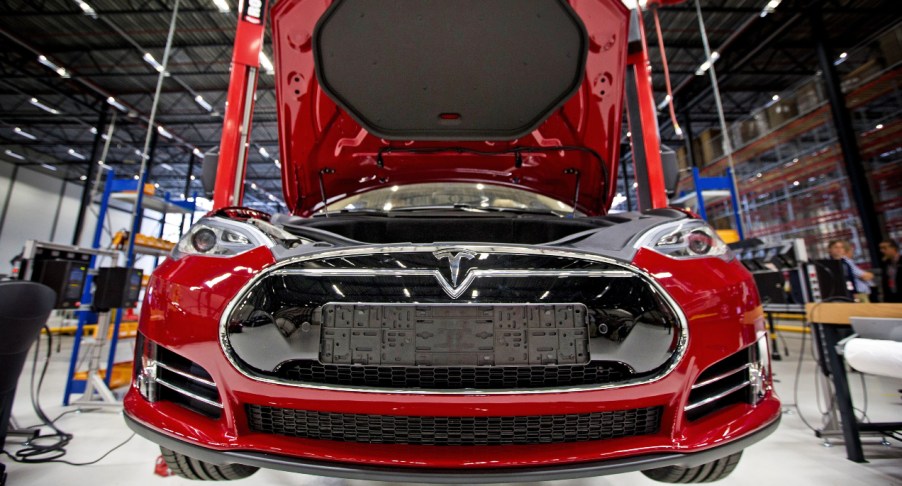
The Greatest Challenge to America’s Electric Future Is a Familiar One
Hybrid vehicles were once considered strange. How could an automobile possibly run on anything other than good old gasoline? Hybrid vehicles are now available from most major automobile brands. Automakers like Toyota paved the way for the popular hybrid vehicles available today. Now, it seems the industry is moving past hybrid vehicles to an even more sustainable fuel solution: electricity. American big three automakers like Ford and General Motors are investing billions of dollars into the development of EVs. Tesla has experienced amazing success but there’s one challenge slowing it down. The biggest obstacle in the way of the electric future is painfully familiar.
The largest obstacle that electric vehicles face is no surprise
According to The Wall Street Journal, electric vehicles could face a serious supply chain issue. Sound familiar? This isn’t just speculation either. The industry is witnessing this challenge in real-time as Tesla struggles to fulfill orders. Tesla is currently the most popular electric vehicle producer in America. In 2022, the automaker isn’t developing any new EVs because it is already having such a hard time meeting the demand for models in its lineup.
Tesla has solidified itself as one of the leaders in the electric vehicle space. It has done so by beating other automakers to the starting line forcing companies to trail behind it. Gas-powered vehicles faced a supply chain issue because of the global semiconductor chip shortage. Now, the electric vehicle industry is facing a similar issue with EV battery materials.
Can America power electric vehicles on its own?
The global semiconductor chip shortage devastated the American market because we outsource the production of semiconductor chips. American companies are responsible for a large amount of semiconductor chips sales, but production is often outsourced for the sake of profit margins. What was once an advantage has now turned into a crippling supply chain issue.
This supply chain issue is causing new and used vehicle prices to rise. Scarcity and unfulfilled demand often mean price hikes. Tesla dodged most of the semiconductor shortage, but it may not be able to avoid a battery material supply issue.
Electric vehicle batteries rely on materials like cobalt and lithium. Those materials require costly mining expeditions in other countries. As electric vehicles become more popular, automakers will need a steady supply of these materials.
Tesla’s current EV struggles are foreshadowing our electric future

In 2022 Tesla is focusing on fulfilling orders because it doesn’t have enough parts to keep rolling out EVs. The automaker that seemed invincible throughout the semiconductor chip shortage is showing the Achilles heel of all American EV automakers.
If American automakers don’t find a way to develop EV batteries in the U.S., they could face extreme supply issues down the line. Will American companies foresee this issue and find a solution before rolling out new EVs, or are other automakers bound to follow in Tesla’s footsteps?



